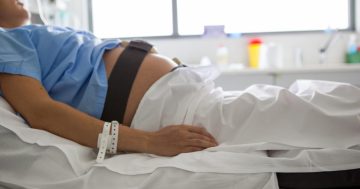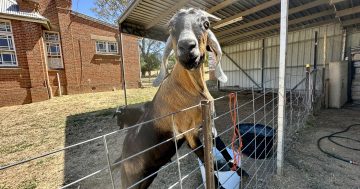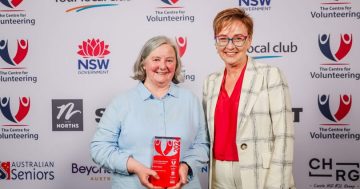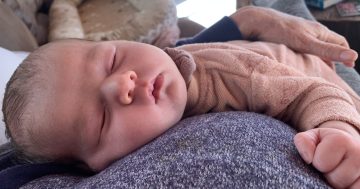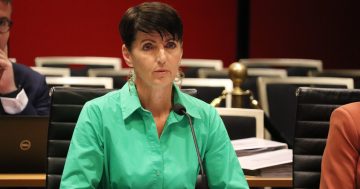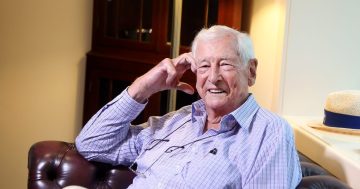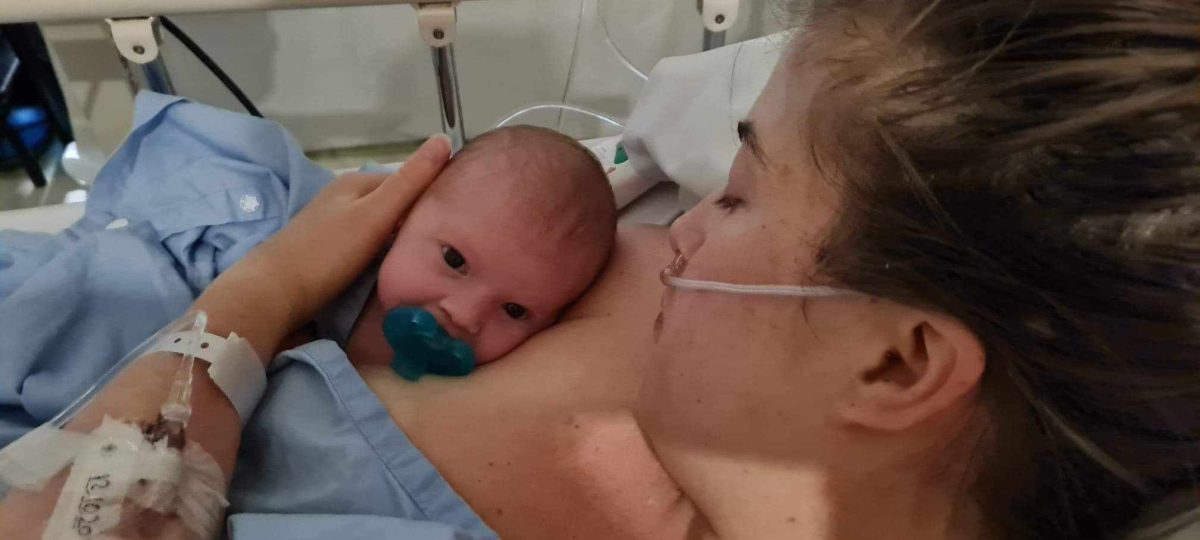
Birth trauma is something many women have trouble speaking about – something Batemans Bay mum Kate Webber wishes to change. Photo: Supplied.
For some families, the most joyful time in their life is marred by serious physical or psychological wounds.
Birth trauma affects more than 100,000 families across Australia.
Because it comes at such a deeply personal and emotionally charged time, birth trauma is seldom spoken about, making it even harder for new parents to access the support they need.
This Birth Trauma Awareness Week (16-22 July), Batemans Bay mum Kate Webber wants to help change that.
“Giving birth was one of the most awe-inspiring experiences of my life – but the aftermath nearly broke me,” she said.
“After a cesarean, emergency surgery and a helicopter ride to the ICU in Canberra, I had lost litres of blood, and nearly lost my life.
“When I woke up after surgery, I had no idea where I was, and no idea if my baby had survived.”
ICU nurses told Kate her daughter was healthy and thriving, and would be brought to her soon.
But the fear she experienced, and her inability to respond to her baby’s cries in those early days, crushed her.
On top of that, the surgeries resulted in bouts of crippling pain that delayed her return to work and still affect her two years later.
“I went into hospital a happy, healthy 29-year-old woman, ready physically and mentally to birth my daughter, and I came out as a shadow of myself,” she said.
“I felt less than human.”
Kate was desperate for answers about what had happened – she spent much of her time in hospital drifting in and out of consciousness.
She was given a formal debrief, but the surgeon who had operated on her did not attend.
Despite trying to make contact through several avenues, Kate has never been able to speak to the obstetrician who cared for her during her birth.
“I have cried, been angry and grieved for precious time lost with my baby, not only immediately after the birth and during my recovery, but due to the pain of trying to move forward without all the facts,” she said.
“I believe not understanding what happened to me has at times slowed my physical recovery process and caused significant secondary trauma.”
This Birth Trauma Awareness Week, she’s sharing her story in the hope that no other mother has to endure what she did – that anyone who needs answers about what happened to them during their birthing experience will have them quickly and easily.
“Women must be listened to so they don’t have to experience a second layer of trauma by reliving their birth experience over and over again, desperately seeking answers,” Kate said.
“I want for every woman who found their birth traumatic to have easy access to a debrief with the team who cared for her.
“There needs to be a direct pathway for women to make contact with their care team and get the support they need to move forward as new mums.”
As part of her advocacy, Kate is taking on the Australasian Birth Trauma Association’s (ABTA) BIG STEP challenge.
ABTA is Australia’s peak charity dedicated to helping to prevent, diagnose and treat birth-related trauma.
She is also hosting a free workout session at the Corrigans Reserve inclusive playground to raise funds and awareness through her business, BayActive PT.
“I am doing this in support of safer births, better healing and raising funds,” she said.
“One in three Australian women identify their birth as traumatic – most of us know someone who is affected.”
The workout session will be held at 10 am this Saturday (22 July).
“All we ask is that you donate what you can afford to our fundraising efforts – it doesn’t matter if it is $2 or $200,” Kate said.
“Every dollar makes a difference.”
To make a direct donation, head to: https://fundraise .birthtrauma.org.au/fundraisers /kate webber/bigstepchallenge2023.







